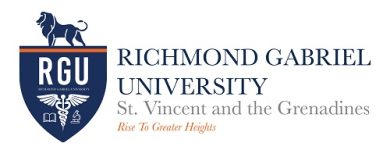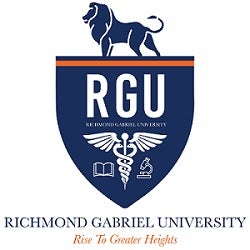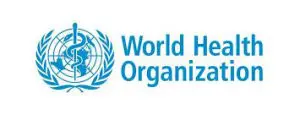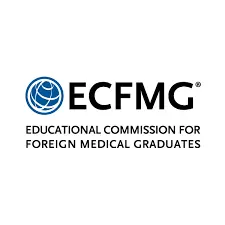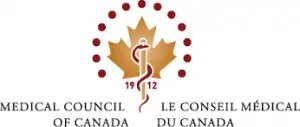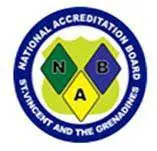BSc. Public Health Curriculum Details
Bachelor of Science in Public Heatlh
Program Curriculum
Students accepted into the Bachelor of Science in Public Health program must complete the following courses to qualify for the BSPH degree. The General Sciences component of this program runs parallel to the Premedical program offered to persons seeking entry into the Doctor of Medicine Degree program.
Semester | Department | Course Code | Course Name | Credits | Total |
1 | Gen. Sciences (GS) | ENG 1001 | English I | 4 |
|
MTH 1001 | Calculus Math 1 | 4 |
| ||
BIO 1001 | Biology I + Labs | 7 |
| ||
CHM 1001 | Gen. Chemistry + Labs | 7 | 22 | ||
2 | MTH 1002 | English II | 4 |
| |
CHM 1002 | Biostatistics Math 2 | 4 |
| ||
BIO 1002 | Biology II + Labs | 7 |
| ||
ENG 1002 | Gen Chemistry II + Labs | 7 | 22 | ||
3 | PHY 1001 | Physics I + Labs | 7 |
| |
OCHM 1001 | Organic Chemistry I + Labs | 7 |
| ||
PSY 1014 | Psychology | 4 |
| ||
ENG 1003 | Scholar Literacy | 3 |
| ||
RES 1001 | Research | 3 | 24 | ||
4 | PHY 1002 | Physics II + Labs | 7 |
| |
OCHM 1002 | Organic Chemistry II + Labs | 7 |
| ||
NUT 1001 | Intro to Nutrition | 3 |
| ||
SOC 1001 | Sociology | 5 | 22 | ||
5 | Public Health (PH) | PH 1010 | Foundation of Public Health | 3 |
|
PH 1011 | Introduction to Epidemiology | 3 |
| ||
PH 1012 | Introduction to Environmental Health | 3 | 9 | ||
6 | PH 1021 | Introduction to Human Diseases | 3 |
| |
PH 1022 | Community Health & Community Needs Assessment | 3 |
| ||
PH 1023 | Behavioral and Cultural Issues in Public Health | 3 |
| ||
PH 1024 | Communication in Public Health | 3 | 12 | ||
7 | PH 1031 | Introduction to Global Health | 3 |
| |
PH 1032 | Basics of Health Policy and Management | 3 |
| ||
PH 1033 | Program Planning in Public Health | 3 | 9 | ||
Total Program Credits | 120 | ||||
COLLEGE OF ARTS AND SCIENCES
BACHELOR OF SCIENCE IN PUBLIC HEALTH
COURSE DESCRIPTIONS
SEMESTER 1
English I ||Course Code: ENG 1001 || 4 Credits
English Language I course focuses on the ability to communicate effectively and intelligently in society today. Students will engage in expository and argumentative writing, as well as the fundamentals of research writing. Emphasis is also placed on oral communication skills.
Biology I ||Course Code: BIO 1001 || 5 Credits
The course will provide first-year students with experience from which they can develop the ability to appreciate simple biological topics pertinent to the understanding of more in-depth biological concepts and topics necessary in the understanding of general Biology pertaining to Taxonomy, Ecosystems, Cell Division, Photosynthesis, and Respiration.
Chemistry for Life || Course Code: CHM 1012 || 4 Credits
This course provides students with an understanding of the fundamental concepts and principles in chemistry that supports and explains the mechanisms of biological systems. Students will learn about thermodynamics, electrochemistry, chemical kinetics, radioactivity and its relations and effects on biological systems. It will focus on the reactivity of functional groups at the atomic and molecular level and its effects on biological systems. Students will learn about metal ions in biological systems.
Medical Terminology || Course Code: MET 1001 || Credits: 2 Credits
This syllabus is designed to equip health professionals with the knowledge to recognize and decipher terminology that applies to medical and public health professions for U.S and International medical students. The course will focus on the roots, prefixes, and suffixes of medical terms and how to apply them to the body systems, specialties, and sub-specialties. Students will be introduced to appropriate terminology encountered in the clinical setting as well.
Human Anatomy and Physiology I ||Course Code ANP 1101 || 4 Credits
This course is part of a two-course series that focuses on how the intricate systems in our body works to keep us healthy. Using an organized and systematic approach that builds on prior foundational knowledge of knowledge about the human body and its functions, students will learn about the human body and its functions. Students will integrate their knowledge of the anatomical structures of your body with the physiological mechanisms that support the anatomic and homeostatic functions, and pathological changes that can occur. This course explores the relationships of structure and function of the body, levels of organization from cellular to organ systems and the mechanisms of homeostasis within these organ systems.
SEMESTER 2
English II ||Course Code: ENG 1002 || 4 Credits
There will be two main modes of academic writing examined and explored by students during this course: expository and argumentative writing. Students will also be exposed to the fundamentals of research writing and will be asked to write a research paper using the appropriate citation style (MLA). Students will be introduced to the roles that culture and perception play in speech and will be asked to analyze the impact and influence that both roles play on verbal and non-verbal forms of communication.
Biology II ||Course Code: BIO 1002 || 5 Credits
This course builds on the students’ understanding of the fundamentals of biologic changes and introduces the basic concepts of genetics. Students will develop and familiarize themselves with biological systems and apply relevant concepts in the explanation of various problems encountered in everyday life, for example Human Diseases, Inheritance, Evolutionary Theories, etc.
Biostats || Course Code: MTH 1002 || 4 Credits
The objective of this course is to teach the principles of biostatistical analysis and epidemiology. It focuses on quantitative data analysis and the application of biostatistics in medical research. Terms such as incidence, prevalence, reliability, validity, sensitivity, specificity, and different research study designs required for success in the medical field. This course is an extension of Mathematics 101 and helps students focus on concepts which hone their ability to organize and make sense of all the information that they will encounter in their public health career journey.
Human Anatomy and Physiology II ||Course Code ANP 1201 || 4 Credits
This course is part of a two-course series that focuses on how the intricate system in our body works to keep us healthy. Using an organized and systematic approach that builds on prior foundational knowledge of knowledge about the human body and its functions, students will learn about the human body and its functions. As you learn about the anatomical structures of your body, you will integrate this knowledge with the physiological mechanisms that supports the anatomy, homeostatic functions and pathological changes that can occur. This course explores the relationships of structure and function of the body, levels of organization from cellular to organ systems, homeostasis mechanisms, and integration of organ systems Students will integrate their knowledge of the anatomical structures of the human body with the physiological mechanisms that supports the anatomic and homeostatic functions, and pathological changes that could occur. This course explores the relationships of structure and function of the body, levels of organization from cellular to organ systems and the mechanisms of homeostasis within these organ systems.
SEMESTER 3
Introduction to Psychology || PSY 1014 || 4 Credits
This course provides a foundation for public health scientists and physicians alike to deal with difficult problems patients and their families may present. Areas covered include Psychiatry, abnormal behavior, mental health diseases and diagnostic skills. Students will be introduced to the stages of life, Freud’s topographic and structural theory of the mind, psychoanalytic theory, learning theories, substance abuse, sleep cycles and disturbances and genetics and biochemistry of behavior.
Scholar Literacy || ENG 1003 || 4 Credits
The course of scholarly literacy is designed to foster a knowledge base in the fundamentals of research, critical to a career in any of area of medicine. The course will include didactics on biostatistics, epidemiology, evidence-based medicine, research methods and other critically appraised topics. Across all activities, students will be exposed to overarching concepts and critical language for implementing and interpreting research. Students will demonstrate integration of knowledge through the completion of individual and group assignments. The course will focus on synthesizing and translating evidence that will inform clinical and research practices.
Research Methods || RES 1001 || 3 Credits
The purpose of the Research Course is to gradually introduce the concept of research to premedical students. It involves the definition of terms and other aspects as regards to understanding research.
This present curriculum has been developed with the goal of achieving an integrated and flexible curriculum that goes beyond examinations. It promotes the skill and art of research in medicine, critical thinking, and lifetime learning. To impart good research skills to the students the program uses didactics lectures, clinical case discussion and practical sessions.
Introduction to Public Health || PH 1010 || 3 Credits
This course introduces learners to the mission of public health and key terms in the field. The course covers historical developments in public health, the roles of different stakeholders, public health’s core functions and essential services, determinants of health, and the Health Impact Pyramid.
Introduction to Epidemiology and Epidemics || Course Code: EPI 1011 || 3 Credits
Epidemiology is a discipline that identifies the determinants of defects, disease and injury in human populations and provides a means of assessing the magnitude of public health problems and the success of interventions designed to control them. Epidemiology is universally regarded as a discipline that is essential for understanding and solving public health problems, regardless of one’s area of concentration or specialization. The Council on Education for Public Health (CEPH) states that, “A professional degree is one that, based on its learning objectives and types of positions its graduates pursue, prepares students with a broad understanding of the subject matter and methods necessary in a field of practice; it typically requires students to develop the capacity to organize, analyze, interpret and communicate knowledge in an applied manner. ” Accordingly, ASU -BSPH has enumerated specific competencies in epidemiology based on the competencies identified by The Association of Schools of Public Health (ASPH).
Healthcare Law and Ethics in Public Health || Course Code: 1013 || 2 Credits
The Healthcare Law and Ethics in Public Health course introduces students to the use of the law to advocate and advance public health policies as well as the obstacles the law can present in the advancement of policies. Students will develop knowledge and skills necessary to identify legal and ethical issues in healthcare policies that are important to address when weighing individual rights versus the goal of achieving healthy populations. Students will learn about the extent of government authorities and their limitations. This course will examine numerous ethical and policy-oriented issues through case studies and highlight the tools that can be utilized by authority figures to improve public health laws and policies and navigate the legal challenges. These issues will be highlighted through discussions on topics such as vaccination policies, disaster response, tobacco, alcohol and drug use policies, obesity, pandemic etc. and examining the legal and ethical dilemmas with implementation of these public health policies and health management practices.
SEMESTER 4
Introduction to Nutrition || Course Code: NUT 1001 || 3 Credits
Introduction to Nutrition course focuses on major nutrients and their dietary sources, functions, and contribution to human health. Students will learn about energy containing nutrients, vitamins and minerals and its contribution to weight management and healthy lifestyle. The course also looks at applying the principles of diet modifications to the treatment of disease.
Sociology || Course Code: SOC 1001 || 5 Credits
This course introduces the main ideas, themes, and issues of Sociology. It lays a theoretical base for the consideration of the nature of Caribbean society and culture and encourages the adoption of a scientific approach to issues of social and economic analysis.
Climate Change and Public Health || Course Code: PH 2102 || 4 Credits
This course introduces students to the nature and scope of the science of climate change and the impact it has on human and population health. Students will be equipped with knowledge needed to be able to systematically scrutinize health policy and to be able to suggest action steps to alleviate identified climate change related problems in select regions. This course examines the many factors that make geographic locations and populations more vulnerable to the health risks of climate change. Students will learn about the effects of energy production and climate change on the quality of food, water, air, and human health. This course also examines the role of the economic climate, implementation of sustainable strategies for adaptation and mitigation, attitude, behavior, and public health professionals play in the decision-making process.
Emergency Preparedness and Disaster Response || PH 2103 || 3 Credits
This course is designed to meet the Association of Schools and Programs of Public Health (ASPPH) Core Concentration Competencies of the CDC Public Health-Preparedness & Response Model. Students will learn of the importance of emergency response plans, procedure, training, and recovery plans in the workplace and nationally to mitigate the effects of disasters. Students will apply their new skills and knowledge to address a wide range of natural and manufactured disaster events of concern to public health. Student will utilize legal/ethical considerations, psychological impacts of disasters, community resiliency, planning for the needs of vulnerable populations, the role of community-based organizations, including faith-based organizations, and other topics relevant to disaster management are all included in this course. As a final project students will develop a disaster plan.
Perspectives in Migrant Health and Human Rights || PH 2104 || 3 Credits
This course examines the intersection of migration, public health and human rights.
SEMESTER 5
Introduction to Human Diseases || Course Code: PH 2021 || 3 Credits
This course is designed to introduce students to the biologic basics of the causes, natural history, and prevention of diseases of public health importance and will cover selected topics including infectious disease transmission and prevention; cancer biology regarding etiology, prevention, and treatment; nutritional influences in obesity, diabetes, and heart disease of the burden of disease with critical review of the current public health literature. Students will have the opportunity to learn the basic concepts and methods of exploring risk factors and assessing the burden of disease at regional, national, and global levels. This will be done through class lectures, group exercise and individual projects.
Health Behavior and Chronic Diseases || Course Code: HLT 3102 || 4 Credits
Drawing examples from tobacco use, poor nutrition, obesity, and lack of physical activity, which are the main drivers of chronic diseases globally, this course a follow up to PH2021, is designed to focus on health behaviors related to chronic disease prevention. At the end of this course, students will gain knowledge and skills of health behaviors to be able to intervene in chronic diseases of very high global public health impact.
Introduction to Environmental and Occupational Health || Course Code: PH 3102 || 4 Credits
The area of environmental and occupational health is broad and interdisciplinary. Students will learn about the epidemiology, microbiology, and toxicology effects on environmental and occupational health. This course will highlight the controls and legal structure of physical, chemical, and biological effects on environmental and occupational health.
Human Sexuality and Sex Education || Course Code: HLT 3103 || 3 Credits
This course examines the biomedical, sociological, and psychological aspects of human sexuality. Students will be encouraged to engage in healthy positive discussions and critical thinking in relation to sexuality. This course will provide students with knowledge on the anatomy and physiology of sexual systems, sexual development across lifespan, psychological aspects of love, human sexuality and sexual behavior patterns and alternative lifestyles. Students will also learn about personal and societal attitudes towards human sexuality and alternative lifestyles as well as the legal aspects of human sexuality.
Perspectives in Global Mental Health || Course Code: HLT 3104 || 3 Credits
This course will provide exposure to this increasingly relevant public health challenge from a global perspective, with a particular focus on the epidemiology, risk factors and consequences, individual-and population-level approaches to treatment and prevention, and delivery of care for mental health problems in different settings and cultural contexts globally.
SEMESTER 6
Community Health and Community Needs Assessment || PH 3201 || 3 Credits
This course introduces students to the concepts and methods of community health improvement and the role of assessment. This course
will cover important community health topics including systems thinking that leads to coordination of health care and public health activities to achieve community health goals; the nature of health and its determinants; the use of quantitative and qualitative methods; data analysis; community mobilization and capacity building; and the impact of current national
policy, including the Affordable Care Act, on community health improvement This course has four major themes:
- Planning a Health Promotion Program: presents information needed to plan a health promotion program including models for program planning, starting the planning process, assessing needs, measurement and sampling, mission statements, goals and objectives, and interventions.
- Implementing a Health Promotion Program: presents information used in implementing a health promotion program including identifying important components related to implementation such as allocation of resources, marketing, and implementation strategies.
- Evaluating a Health Promotion Program: presents an overview of the evaluation process including how to plan an evaluation and evaluation approaches and designs.
- Reporting and Presenting a Health Promotion Program: presents information needed to develop and conduct program reporting and presentation activities.
Behavioral and Cultural Issues in Public Health || Course Code: PH 3202 || 3 Credits
This course is designed to introduce students to major social and behavioral science theories which inform and influence the health and wellness of individuals, groups, and populations. The importance of evidence-based community and public health programs will be discussed, and students will have an opportunity to apply theories to public health practice and interventions while examining the interplay between vulnerability, health status, and health care access and quality. Physical, psychological, demographic, environmental, socioeconomic, and cultural issues influencing the health status of and health care delivery to these vulnerable populations.
Communication in Public Health || PH 3203 || 3 Credits
The fields of communication, public health and public relations are increasingly recognized as powerful tools in addressing the world’s most imperative public health challenges. Knowing how to effectively frame communication, select media, and construct health campaigns, can assist you in informing, empowering, or persuading individuals to adopt healthier lifestyles as well as foster public debate and governmental policy change. Effective delivery of health education and communication often leads to improved health literacy and positive changes in behavior among populations. In this course, students receive an overview of health education and its role in improving the health of individuals as well as populations. Students review the philosophical, historical, ethical, and theoretical foundations of health education as well as effective principles for the delivery of healthcare. They also examine the primary responsibilities and competencies of health educators, trends in the field, professional organizations, national certification, and the code of ethics.
Introduction to Global Health || Course Code: PH 3204 || 4 Credits
Global Health is described as “an area for study, research and practice that places a priority on improving health and achieving equity in health for all people worldwide” (Koplan J, 2009. Lancet. 373: 1993). During the course, a broad snapshot of global health will be presented, providing students with insight into the challenges currently facing global health. Students will also gain an understanding of why tackling global health issues is such an important endeavor with the potential to reduce poverty, build stronger economies and promote peace. Students will not only be exposed to the major communicable and noncommunicable diseases posing a profound effect on health (especially within the developing world) but will also learn how socioeconomic and demographic differences can influence the burden of disease. Several other critical underlying factors including environmental, behavioral, and cultural influences will also be presented. Using case reports from around the world, the course will explore how research findings are transferred into policy and practice. Students will be encouraged to understand that solving global health problems requires the input of multiple disciplines and diverse fields, including the sciences, ethics, economics, and diplomacy. An interactive group exercise will be conducted as part of the course. This course introduces global health by putting its contemporary definition, determinants, development, and direction as a field into a broad global context.
Critical Issues in Public Health || Course Code: PH 3205 || 3 Credits
Students will learn about the many complex and controversial public health issues and engage in deep discussions that examine these issues from differing perspectives and angles. This course will cover a variety of topics including biomedical issues, social and behavioral factors and environmental factors that affect health.
SEMESTER 7
Basics of Health Policy and Management || PH 4101 || 3 Credits
Health Policy and Management course explores the major topics related to study of health and health care delivery. We will discuss determinants of health, the social distribution of health and disease, and health disparities; the organization and financing of the U.S. health care system, its historical context, the roles and behaviors of its key actors, and its comparison to health systems of other nations; the quality, cost, and accessibility of health care services; and health care delivery system improvement and reform. For each of these themes, we will use a multidisciplinary lens covering the sociological, political, economic, and ethical perspectives on health and disease, the health care system, and the challenges of meeting the varied needs and motivations of health care system stakeholders.
This course brings an introduction to major health policy issues and examines the role of federal and state governments in the health care system. An important focus of the course is an assessment of the role of policy analysis in the formation and implementation of national and local health policy.
Students are encouraged to browse current issues of well-respected journals, e.g., American Journal of Public Health; Journal of the American Medical Association; New England Journal of Medicine; The Journal of Health Politics, the journal of immigrant health...
Program Planning in Public Health || Course Code: PH 4102 || 4 Credits
This course presents methods for the identification of population-based needs for public health intervention, development of programs to meet those needs, and evaluation of the effectiveness of these public health interventions. The course integrates several knowledge and skill areas including research methods, epidemiology, biostatistics, proposal writing, budget planning, project management, and program evaluation. At the end of this course students will develop program and evaluation plans to highlight the skills gained.
Health Disparity in Public Health || Course Code: PH 4103 || 4 Credits
This course looks at how social determinants influence the health outcomes of disadvantaged populations in both developed and developing countries. Students will gain insight, knowledge and understanding of how socio-economic, environmental, racial, ethnic, gender, lifestyle and culture influence disease, morbidity and mortality in minority and medically underserved populations. Discussions will focus on the implementation of culturally focused public health policies, why it is needed and how it can help to reduce the health disparities facing the affected populations.
Leadership in Public Health || Course Code: PH 4201 || 4 Credits
To effectively implement public health policies, you need to demonstrate leadership skills. Students will be equipped with the knowledge and resources necessary to develop their own strong leadership skills. Students will learn about the theories and models of leadership, leadership competencies, ethical issues in leadership, leadership changes in a team, organization, and community.
